To the Cree people Charles is Kisikawpisim Kamiyowahpahmikoot
(The sun watches over him in a good way)
&
Our Queen Consort
(whose great-great-great grandfather, a son of Hamilton, ON, was Prime Minister of the Province of Canada)
“Every time I come to Canada … a little more of Canada seeps into my bloodstream – and from there straight to my heart.” NL, 1990“Canada is a celebrated champion of human rights, peacekeeping and diversity … with, if I may say so, Canada’s commitment to reconciliation with Indigenous Peoples demonstrating a remarkable determination to forge an ever better society.” Parliament Hill, Canada150, 2017
“As I get older, it is particularly heartwarming to see my children coming to know and love this great country, just as the Queen and my late father have, and I and my wife in turn.” St John’s, NL, 2022
“My wife and I were most concerned to hear of the appalling devastation caused by storm Fiona and particularly wanted to send our profound sympathy to the people of Atlantic Canada whose lives, livelihoods and properties have been so badly affected by this disaster. We have fond memories of our recent visit to your beautiful region and know that your resilience and sense of community will help you through these unbelievably difficult times. We would also like to express our deep appreciation to the first responders, the military and to community members who are doing so much to support others during this extremely challenging period. Our thoughts and prayers are very much with all of you as you work to recover and rebuild.” The first such message in our King’s reign was sent to the people of Atlantic Canada, September 28, 2022
CHARLES IN CANADA
An overview of Canadians’ long relationship with our new Monarch
The Prince of Wales’ multi-focussed interests, ranging from a concern for the built environment to sustainable farming practices to rainforest preservation, and from humane architecture to his serving as a principal interlocutor between Islam and the West, and—above all—to his work among youth and enterprise through the Prince’s Trust—have for decades found increasing resonance amongst Canadians, and over recent years, the Trust was extended to Canada. Throughout the last 52 years, as well as his holding many honorary appointments in the Canadian Forces, the personal presence in Canada of the Heir to Canada’s throne, now our King, has long been a familiar sight.
As a young man, Charles dove under the Arctic ice cap, emerging with an inflated suit to make him somewhat resemble the Michelin Man of the tire manufacturer’s advertising fame! However amusing the photograph, the dive was a deliberate and carefully staged event by the Trudeau government. No better image could have informed the world in July, 1970 of Canada’s assertion to sovereignty over its northern lands and water passages, a role then being tested by both the United States and the Soviet Union.
Themed homecomings, linking the Prince’s interests to Canadian values and concerns, have been a regular part of Charles’ diary, whereby he came to know Canada, and Canadians gained impressions of the then Prince of Wales in person rather than through the often-distorted media stories.
Given that the Royal Family, like any family, has gone through its ups and downs, Canadians also have come to know Charles through our sharing in the good and bad times of his life. We hailed his bride, Diana, Princess of Wales, during the couple’s triumphant Maritime tour in 1983, while in 1986 no less adulation accompanied a British Columbia tour culminating in their visiting Expo 86 in Vancouver. A warm welcome also came to them throughout an Ontario tour in 1991. It was on this occasion that Charles and Diana were memorably reunited with their sons, William and Harry, aboard HMY Britannia, which was docked in Toronto Harbour.
In common with a world perhaps too easily forgetful of the deep unhappiness marriage breakdown inevitably brings to our own family and friends, Canadians eagerly consumed details of subsequent unhappiness in Charles and Diana’s lives, and made judgments based on, at best, incomplete knowledge of all the circumstances involved. This emotional reaction to the very public breakdown of the Prince and Princess’ relationship was rekindled in the genuine grief coupled with over-wrought emotions that accompanied Diana’s tragic death in 1997.
However, like our counterparts throughout the Commonwealth, as time passed many Canadians gradually came to judge Charles less as a figure in a ghastly soap opera and more as whole man, with many talents along with – as all of us – flaws. The burgeoning of support for his various causes, and his evidently close relationship with his sons, led most to wish for him the same happiness so many of us have found in second marriages, in this case a union approved by The Queen and welcomed by William and Harry. This more sympathetic view was apparent by the time of Charles’ marriage to Camilla Parker-Bowles in 2005 – and in the warm, welcome given the Prince and Duchess of Cornwall on their first Canadian homecoming as a couple in the fall of 2009.
The newlywed couple’s first homecoming also reminded Canadians of Camilla’s direct ancestral links to Canada, through a former Prime Minister of the Province of Canada, Sir Allan MacNab, a son of Hamilton, Ontario (and builder of Dundurn Castle) who was the Duchess’ great-great-great grandfather.
It was followed by even more successful visits in 2012, 2014 and for Canada 150 Celebrations on Parliament Hill in 2017 – and a brief Jubilee tour last May to St John’s. Ottawa and the Northwest Territories.


